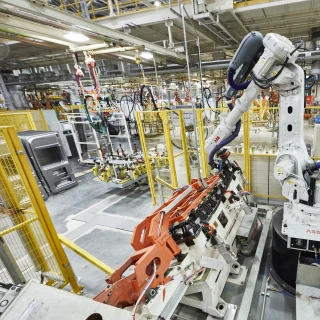
ABB Robotics x delaware: when IT met OT
- operations
A key error in any Industry 4.0 transformation is approaching it from a purely technological angle. But, despite our insistence on the importance of people and business strategy, technology does play a major role at some point – and the sooner you get the three aligned, the better. For a recent project at Umicore PMR, we teamed up with ABB Robotics to translate spotted opportunities on the work floor into concrete technological solutions – right from the start.

/thumbnail-(1).webp?mode=autocrop&w=320&h=240&attachmenthistoryguid=882891bf-d570-46e0-ab11-027cc0b963ef&v=&focusX=356&focusY=398&c=5f7cde7f9e2ee49cb319155bc7895d3ebaf6b49e6e35a67ae69fbf3301c49805)

/thumbnail-(1).webp?mode=autocrop&w=320&h=240&attachmenthistoryguid=ec1e033b-7e89-42bb-9d48-20807958985a&v=&focusX=423&focusY=387&c=dcd2ff6e3f59b1765b1a2cb81bd5cd94b14f15ec004f71c4c19b892abb95403f)